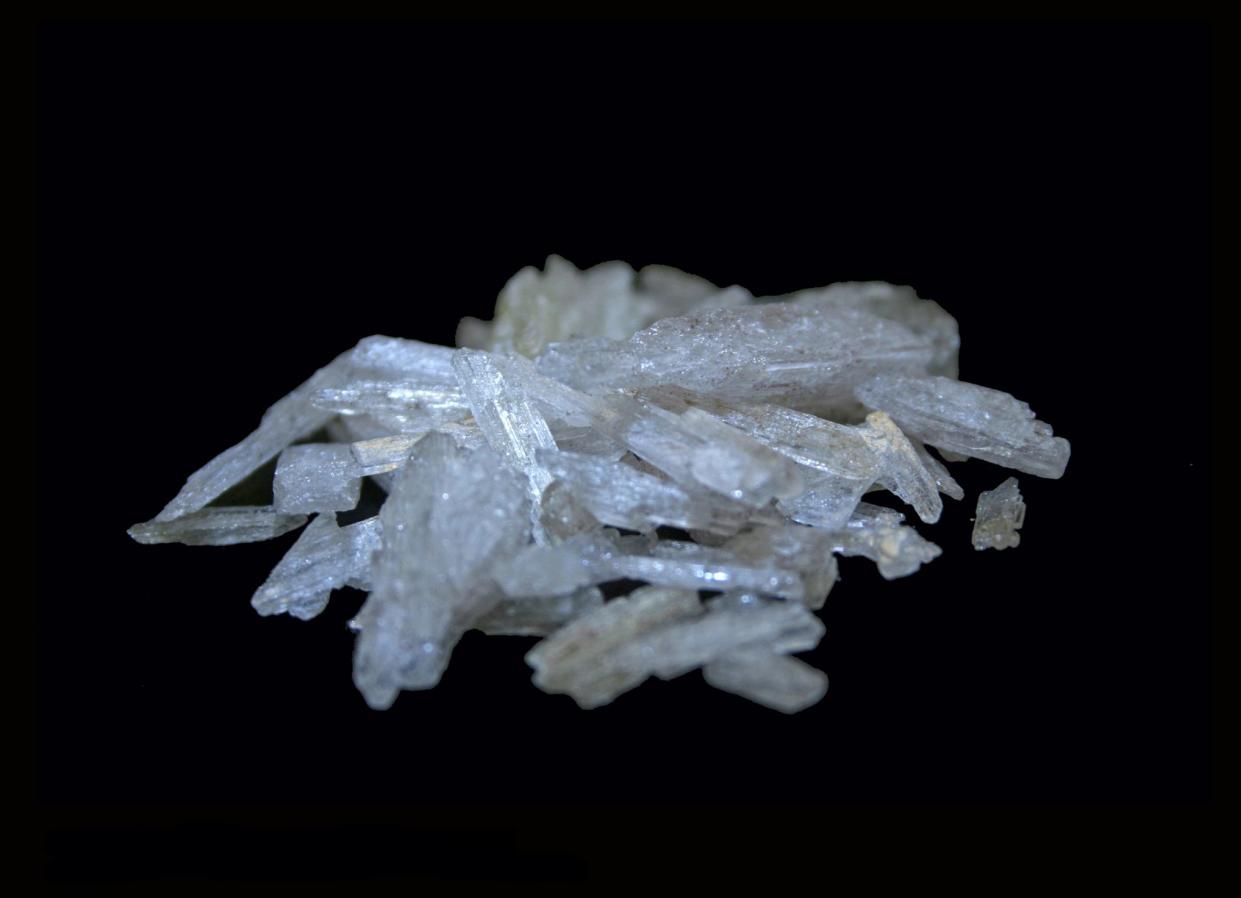Methamphetamine Abuse Can Cause a Stroke

James C Hooper / Getty Images
Methamphetamine, an illegal recreational drug of abuse, can cause stroke in habitual or first-time users, whether they are young or older in age. The pharmacological action of methamphetamine is quite well understood. Classified as a stimulant, it is illegally used primarily for the purpose of achieving a sense of euphoria, to temporarily relieve symptoms of low self-esteem or to amplify the sex drive of the user.

Physical Effects of Methamphetamine
The physical effects of methamphetamine are produced by its chemical action on the body. Smoking or injecting the drug triggers an immediate physiological process that elicits an unusually elevated blood concentration of a natural substance called dopamine, as well as some other potent stimulant neurotransmitters.
The body normally produces enough dopamine to maintain life-sustaining actions, such as steady breathing and stable heart and brain function. Additionally, dopamine is naturally produced and released by our bodies when we feel happy, satisfied, or peaceful.
The excessive concentration of these natural chemicals during methamphetamine use alters a user's heartbeat and blood pressure while speeding the rate of breathing and producing dizziness, sweating, and elevated body temperature. Methamphetamine use also slows down the digestive system, causing nausea, stomach upset, and bowel problems.
How Methamphetamine Can Cause a Sudden Stroke
A stroke is caused by diminished blood supply to the brain. Extreme alterations of blood flow, heart rhythm, or blood pressure typically occur as a result of methamphetamine use, which can lead to alterations in blood to the brain and therefore a stroke.
Precipitously high blood pressure, vasculitis (an inflammation of the blood vessels), and direct toxicity to the blood vessels caused by methamphetamine use, can cause blood vessels to tear or leak, resulting in dangerous hemorrhagic strokes.
Studies show that hemorrhagic strokes are more often associated with methamphetamine use. However, methamphetamine can induce ischemic strokes in otherwise healthy young individuals as well. Abnormal and irregular heart rhythm or an abrupt closing off (spasm) of blood vessels can result in sudden interruption of blood flow, causing a stroke.
How Chronic Methamphetamine Use Can Lead to Stroke
In addition to the short-term risk of stroke, long-term methamphetamine abuse can cause acceleration and premature development of atherosclerosis, which is a hardening of the arteries. Atherosclerosis is one of the well-known health conditions that make a person predisposed to stroke.
Physiological and Behavioral Effects of Methamphetamine
Methamphetamine users can become jittery, agitated, and paranoid during use. Over time, psychosis may develop and persist even after the drug is no longer present in the body.
The substance is extremely addictive for a number of reasons. The user typically wishes to repetitively experience the sense of euphoria produced by methamphetamine. This makes a drug user continue to seek and use the drug again and again in order to achieve the desired effects.
Another reason for methamphetamine’s powerfully addictive properties is that, when the bloodstream is flooded with excessive dopamine and other familiar chemicals, the body's natural production of these substances slows down in order to normalize the body’s concentration over the long-term, paradoxically resulting in a relative scarcity of these products. As a result, when not taking methamphetamine, a user feels the effects of low dopamine such as depression, sleepiness, and lack of energy. These physical factors feed the addictive quality of methamphetamine.
Emergency Management of Methamphetamine
There are medical treatments available that may be able to reverse the effects of methamphetamine on a crisis situation. These treatments include pharmacological substances that produce effects that are the exact opposite of methamphetamine’s physiological effects. Overall, the outcomes of methamphetamine-induced strokes are quite poor, with a high rate of death from hemorrhagic or ischemic stroke.
A Word From Verywell
It is particularly challenging to stop potent drugs of abuse, in part because the withdrawal reaction can be almost intolerable or even dangerous. The social ties and the lifestyle habits of drug use can consume an abuser’s life, making the prospect of quitting feel like a frightening lifestyle change that entails leaving one’s community group.
Because it is so difficult to stop using addictive drugs, it is recommended to get professional help and support when it comes to overcoming addiction.
The risks of methamphetamine are life-threatening, as the drug may cause death or severe disability.
